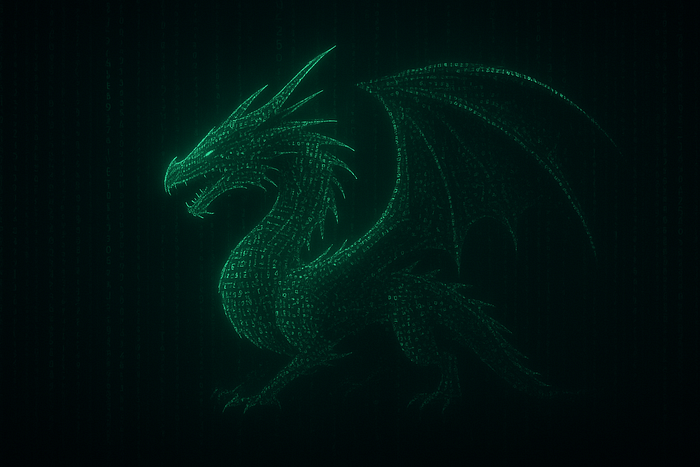"In ancient times, dragons guarded gold. Today, hackers guard data." — Unknown
There's a new religion emerging in cyberspace — one not based on faith, but on code, curiosity, and chaos. I call it Digital Dragonism.
It's not an official term, but it's one that perfectly captures what's happening in the hacker world today — where knowledge is currency, data is gold, and exploits are spells.
Let's dive into what this really means — and why, if you're entering the world of cybersecurity, you're already part of this new digital mythology.
🧠 1. The Hacker Mindset: Curiosity as a Superpower
The true hacker isn't motivated by money or fame. They're motivated by the need to know.
Every exploit, every bypass, every successful reverse engineering attempt — is just curiosity manifested into control.
That's what separates a script kiddie from a dragon — one presses keys; the other understands the fire.
In 2025, curiosity is the new superpower. AI may automate detection, but curiosity still drives discovery — and that's something no algorithm can replace.
🛡️ 2. Scopers: The Modern-Day Guardians
In hacker lore, Scopers are the ones who define the boundaries — they decide what's fair game in a penetration test or a bug bounty program. They're the modern paladins of the cyber realm, defending ethics in a digital world where lines often blur.
Without Scopers, chaos reigns. Without Scopers, hacking becomes vandalism, not art.
If you ever run a program or lead a red team — remember this: The scoper defines the story. The scope you set is the world your dragons can fly in.
🔥 3. Dragonism: A Philosophy, Not a Practice
So what exactly is Digital Dragonism?
It's a mindset — the belief that data has life, and that those who understand systems hold power over modern civilization.
It's the realisation that:
- Our "castles" are firewalls.
- Our "swords" are exploits.
- Our "battles" are waged in terminals.
And in this world, a true dragon doesn't just break systems. They study them, respect them, and master them.
Dragonism is not chaos; it's control.
🧩 4. The New-Age Apprentices
If you're a beginner entering cybersecurity — welcome. You're the new apprentice in this order.
Forget the glamor of anonymous masks and dramatic breaches. Real hacking is quiet. It's patient. It's often just one person in front of a screen at 2 a.m. trying to understand why one request behaves differently from another.
Start with:
- Burp Suite — your first flame.
- Wireshark — your vision.
- Reverse engineering — your spellcraft.
- Scripting — your incantation.
Every log you read, every packet you analyze, every CTF you solve — you grow your wings.
💡 5. The Era of Synthetic Defenders
But dragons aren't the only ones evolving. So are the knights.
AI-driven SOC systems, automated intrusion detection, behavioral analytics — we're now in an age where machines defend machines.
Yet, there's something poetic about it — a hacker trying to outsmart an algorithm that's trying to outsmart the hacker. It's an infinite chess match between instinct and automation.
This is the next chapter in cybersecurity. Not "humans vs. machines," but humans enhanced by machines vs. humans enhanced by machines.
🌌 6. Beyond Exploits — Toward Enlightenment
At some point, every great hacker realizes something profound — hacking isn't about breaking things; it's about understanding them deeply enough to rebuild them better.
Dragonism, in its truest form, isn't destructive. It's transformative.
When you learn to think like a hacker, you learn to think like a creator. Because to defend something — truly defend it — you must first learn how it can be broken.
🧙♂️ Final Thoughts
So, to my fellow digital dragons: Keep learning. Keep testing. Keep questioning.
And remember — fire used wisely can forge steel.
The future belongs not to those who merely use technology, but to those who understand its soul.
🏷️ Topics
- Cybersecurity Philosophy
- Ethical Hacking
- Security Research
- Hacker Mindset
- Artificial Intelligence in Cyber Defens

